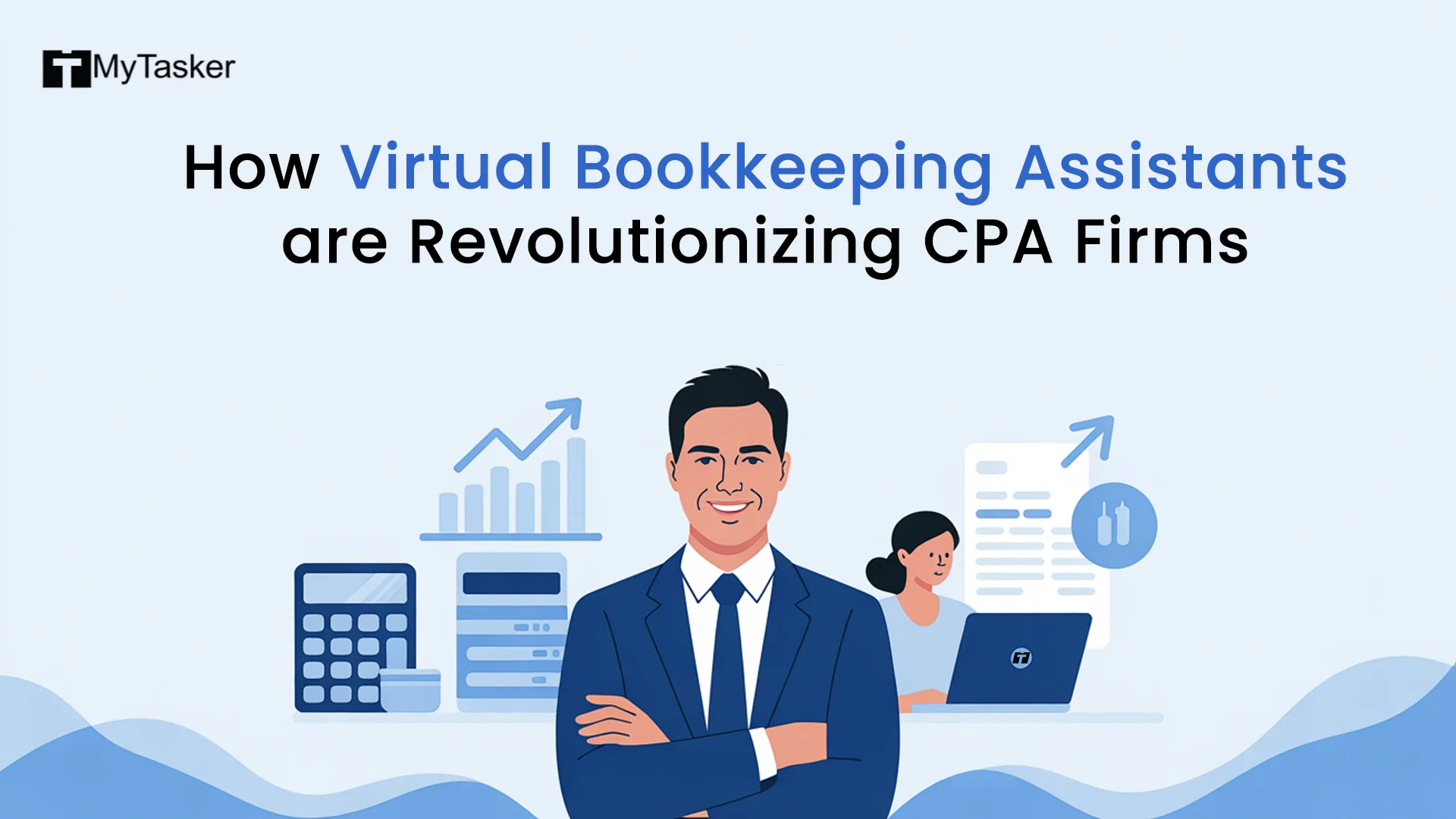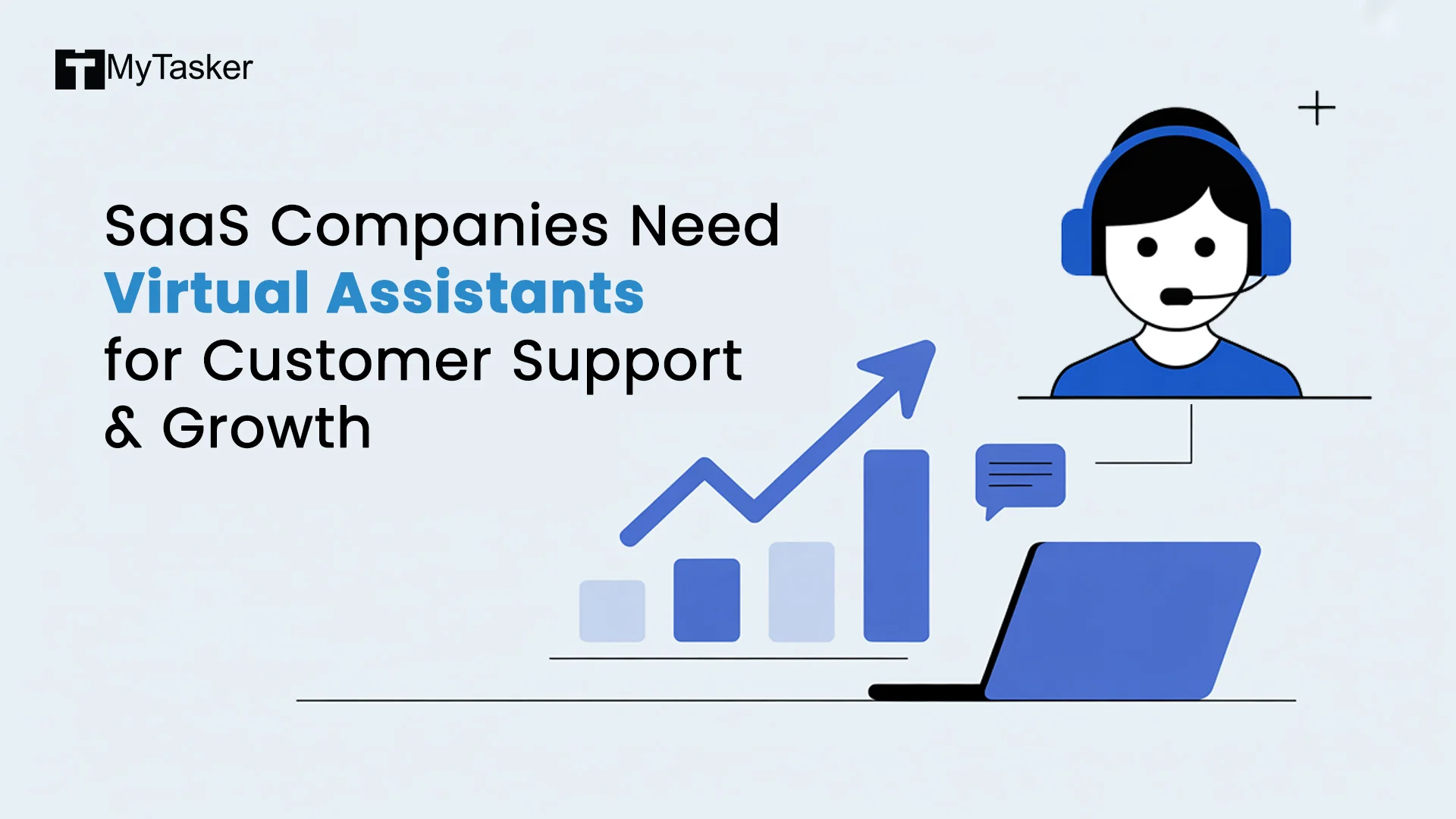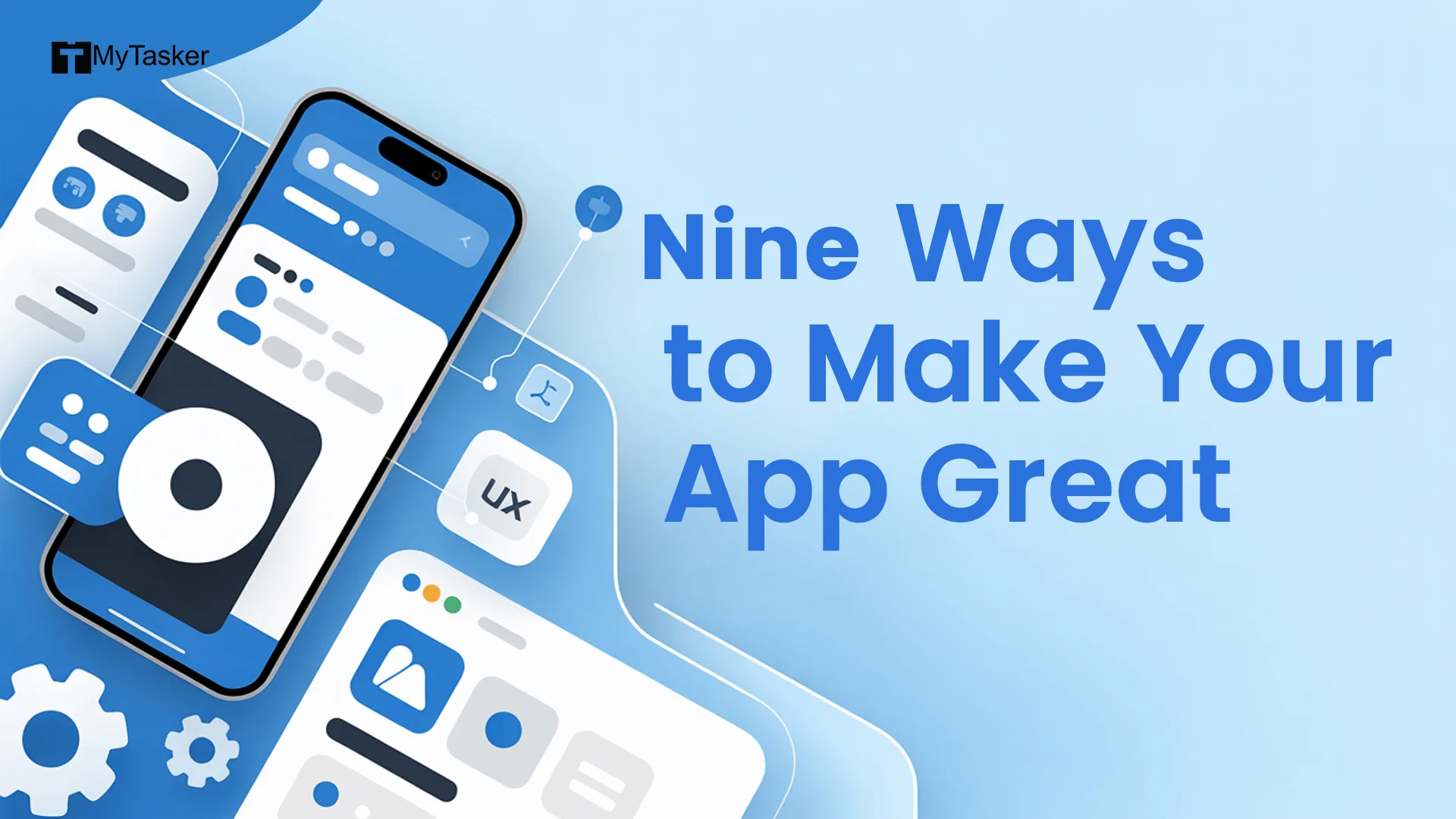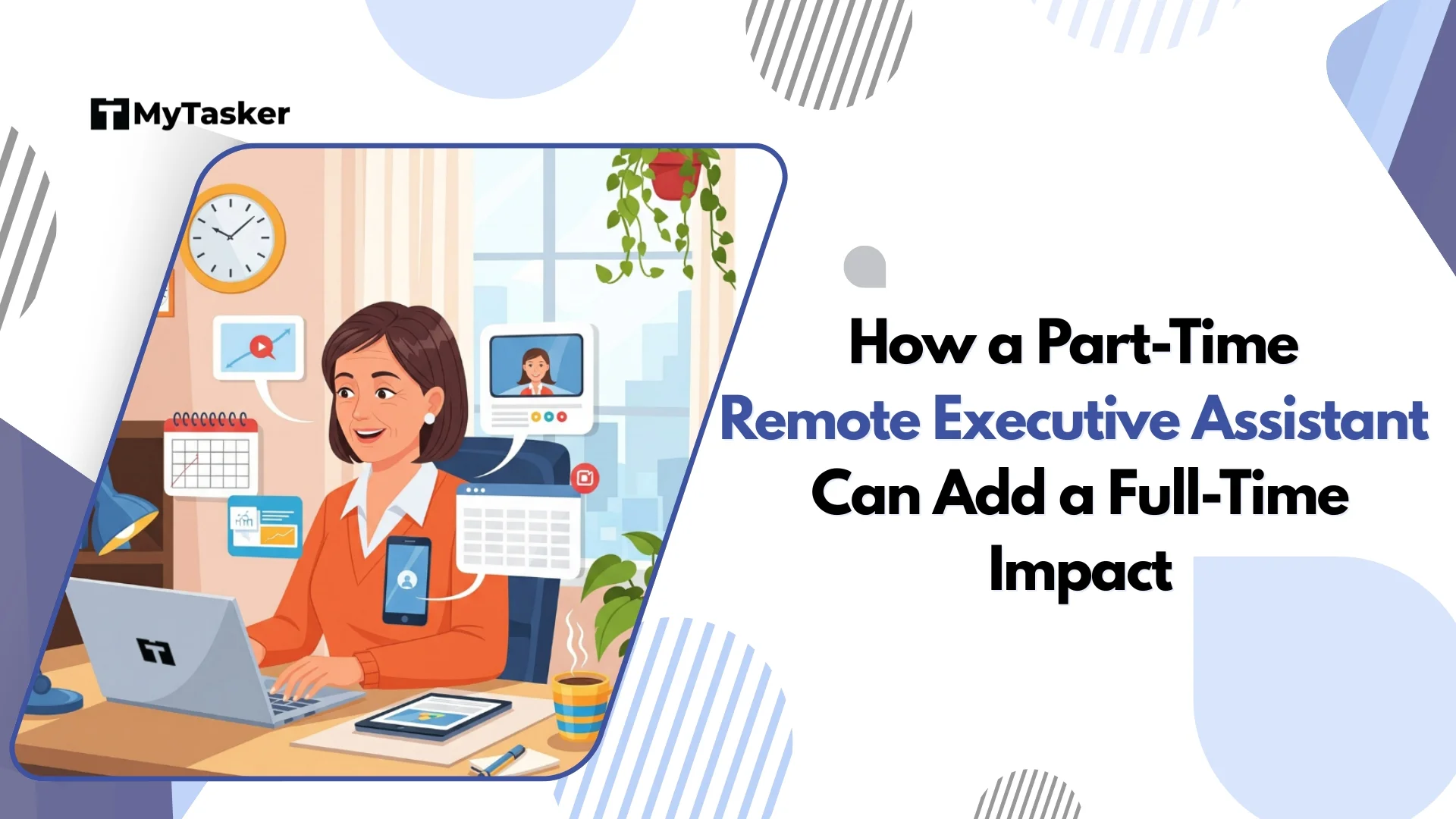Accounting has never been known for its glamour. With columns, ledgers, and reconciliations, the world of CPAs has been a temple to precision and patience for decades.
But something quietly magical is happening outside the four walls of the office, and it is reshaping the way CPA firms work. They are making CPA firms faster, leaner, smarter, and even a little more daring.
We are talking, of course, about virtual bookkeeping assistants, the Virtual Assistants who specialize in bookkeeping tasks, aka, virtual bookkeeping experts, or virtual bookkeeping assistants. They take care of all your bookkeeping needs without being present in your office or meeting you in person.
The Invisible Accountant in the Room
Imagine walking into an old-timey accountant’s office . There are piles of paper everywhere and a fax machine making noise in the corner. People wearing glasses are looking at spreadsheets and quietly talking about numbers and balances. Now fast-forward to today, where the papers are gone, along with the stacks. The trial balances are still there, but they’re being handled by software that never sleeps, never misses a decimal, and sends real-time updates straight to your dashboard. The fax machine may be there as well, but now it is gathering dust in the corner.
Virtual bookkeeping assistants are not just another internet gimmick or a trend to chase. They’re taking full responsibility for the soul-crushing parts of accounting work quietly. Let us have a look at just a few of the things they handle:
- Data entry
- Bank reconciliations
- Invoice matching
- Audit trails
- Error checks
But the twist is that they’re not replacing your accountants. They’re liberating them to do more.
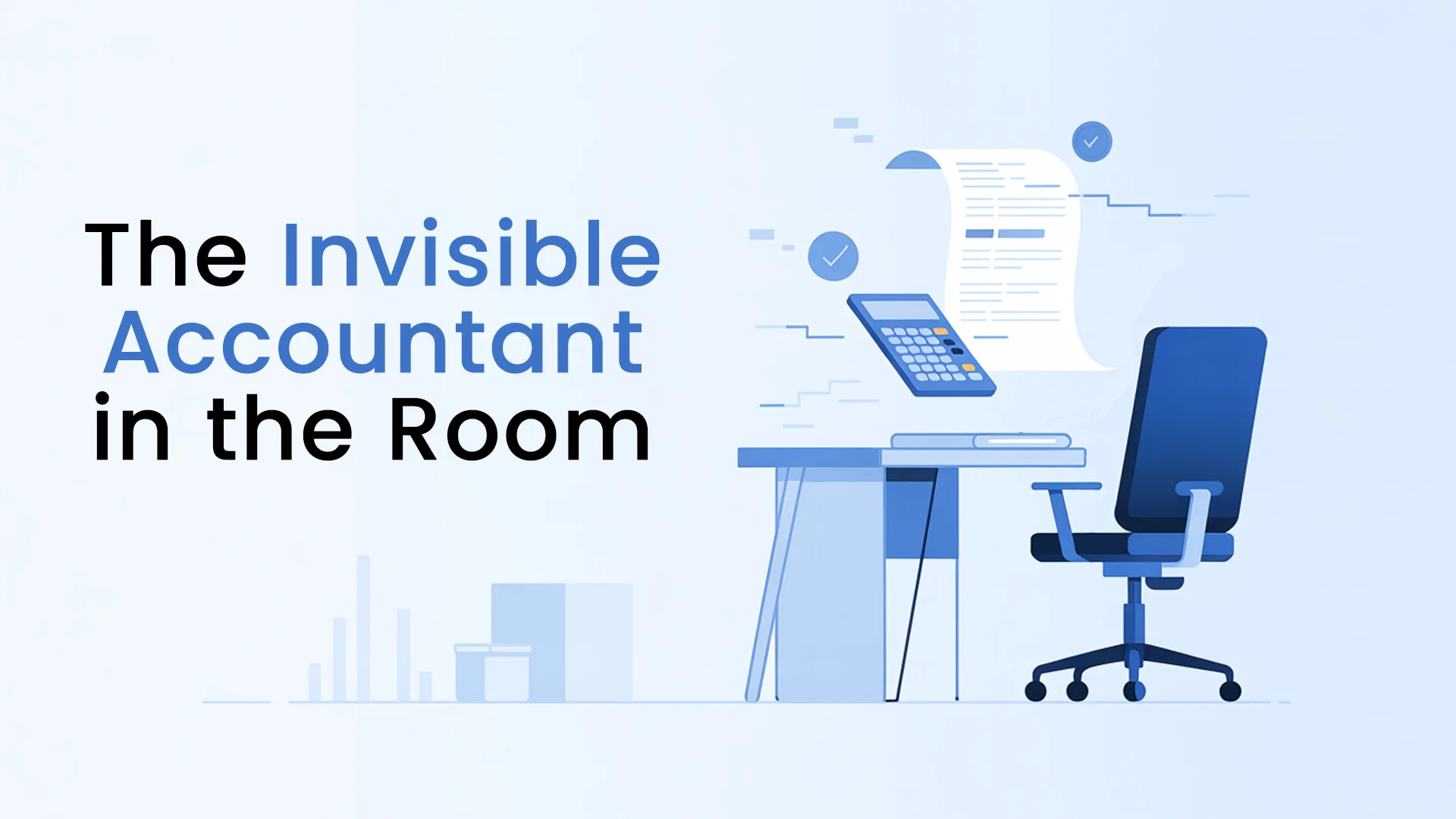
Cutting Costs Without Compromising Quality
Before virtual assistants, firms spent a small fortune on the following:
- Hiring and training staff just to handle mundane data
- Buying hardware, servers, and maintenance
- Fixing human errors that should never have happened
Cloud-based assistants slash overhead costs, streamline audits, and make pricey “oops” moments much rarer. Your team spends less time staring at reconciliations and more time advising clients on how to actually grow their wealth.
One mid-size firm even reported shaving 60% off their bookkeeping hours in just one quarter, and their error rate plummeted by 70%.
(Yes, CPAs love those kinds of stats.)
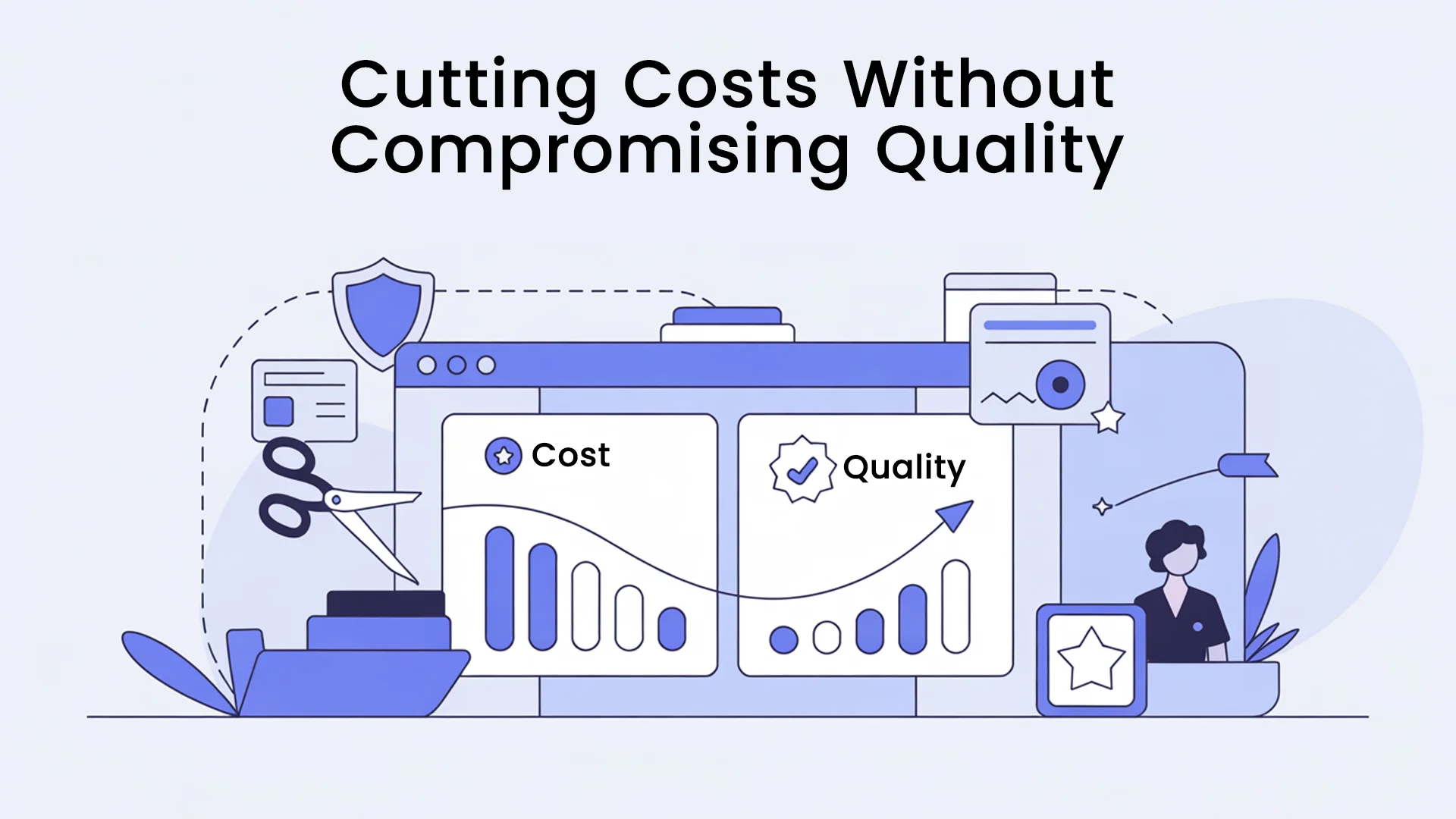
What is the cost of hiring a virtual bookkeeper?
Hiring an in-house bookkeeper in the United States has an approximate range of $40,000-$55,000 a year, excluding the cost for benefits, workspace, training, and turnover. Add to that the time it requires in recruiting and onboarding.
In contrast, virtual bookkeeping services are typically priced on an hourly or monthly basis, allowing you to pay only for what you actually need and for the duration you require. The beauty here is flexibility. If one month is quieter, you slow down. If things get busy, you hire more virtual bookkeepers or opt for more hours. And you don't need to have any strange conversations, just smooth sailing.
The rates vary depending on the complexity of your books, the platform you use, and whether you appoint an independent VA or go through a particular firm. Specific costs are:
- Basic bookkeeping (data entry, reconciliations) can cost around $20–$50/hour
- Full-service virtual bookkeeping can range from $300–$800/month for small firms, scaling up with your needs
- Premium CPA-level advisory support: priced higher, but still more flexible than a hire
For many mid-sized CPA firms, switching to a virtual assistant has cut bookkeeping overhead by as much as 50–70% annually, freeing up budget for growth initiatives while reducing operational headaches.
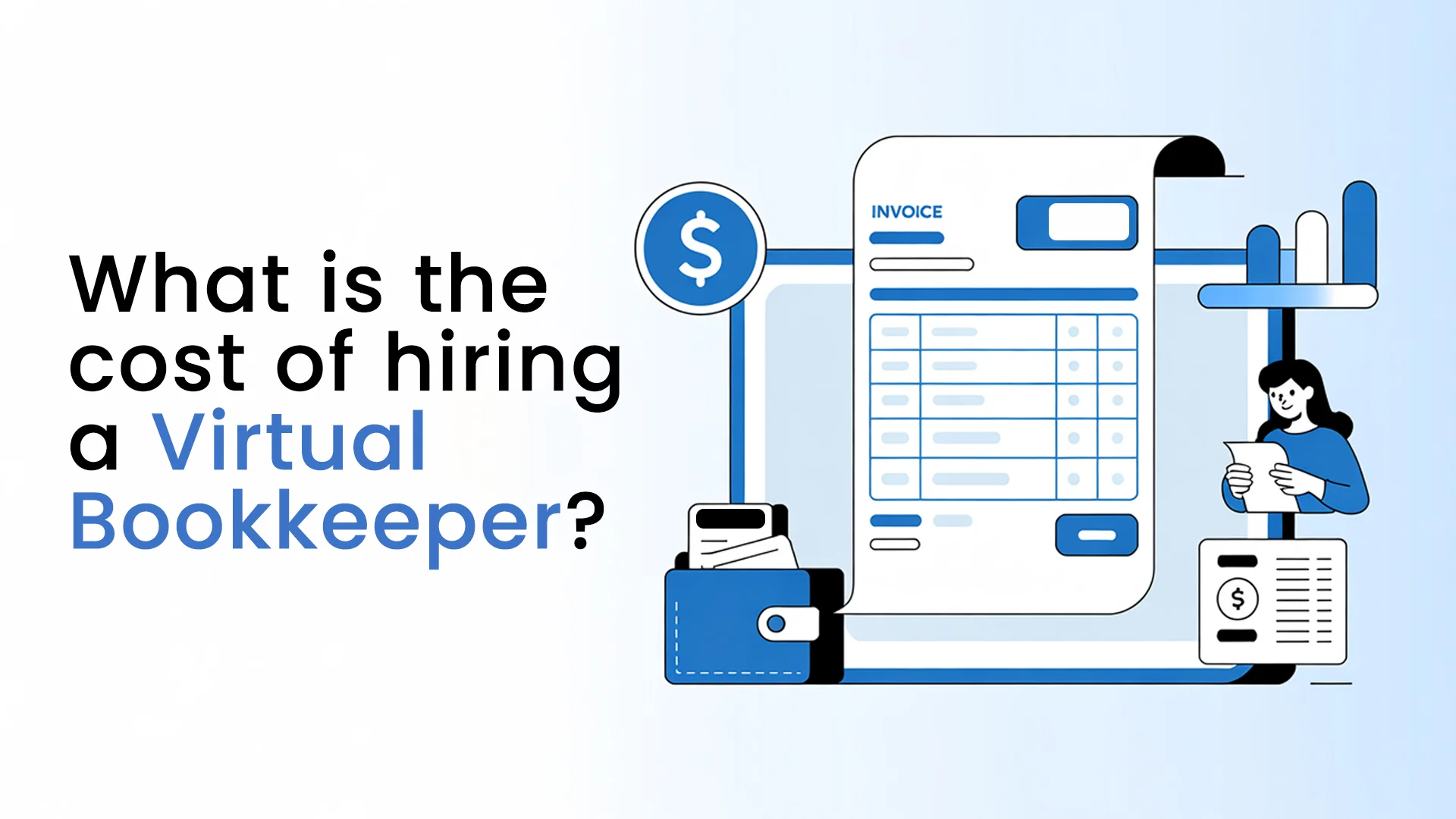
They Handle Workflow Like Experts
One of the most underrated superpowers of virtual bookkeeping is how it reshapes processes.
Not by bulldozing them, but by streamlining what’s already there.
Think of it like switching from a crowded highway to a dedicated express lane, as a result of which:
- Data flows seamlessly between platforms
- Teams collaborate in real-time instead of playing phone tag
- Errors get flagged instantly rather than haunting you during audits
The result is less chaos, fewer bottlenecks, and more time for the strategic, human side of your firm.

Unmatched Accuracy & No More Rounding the Wrong Way
Even the best accountants are human, and when they get tired, fatigue sets in.
On the other hand, virtual assistants don’t tire because they have rotational shifts.
- And they’re built to validate every entry as it happens, not weeks later
- Their automated error detection and complete audit trails make audits not only less painful but even satisfying
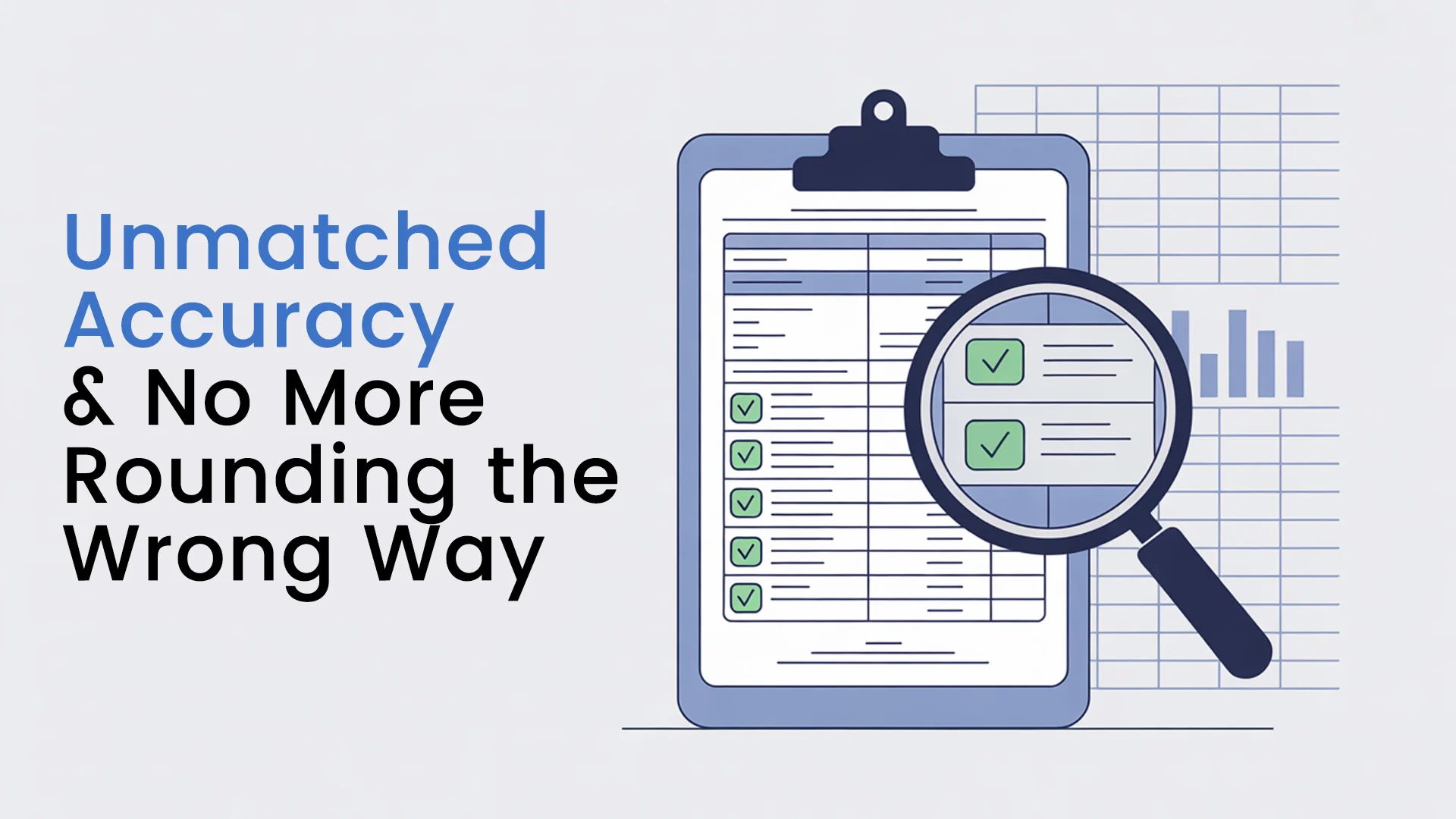
Seamless Integration, But Only If You Do It Right
Where many firms go wrong is that they assume you just “plug in” a virtual assistant and everything magically works. That is not the way. Like any good partnership, it takes planning, plotting, structure, and finesse.
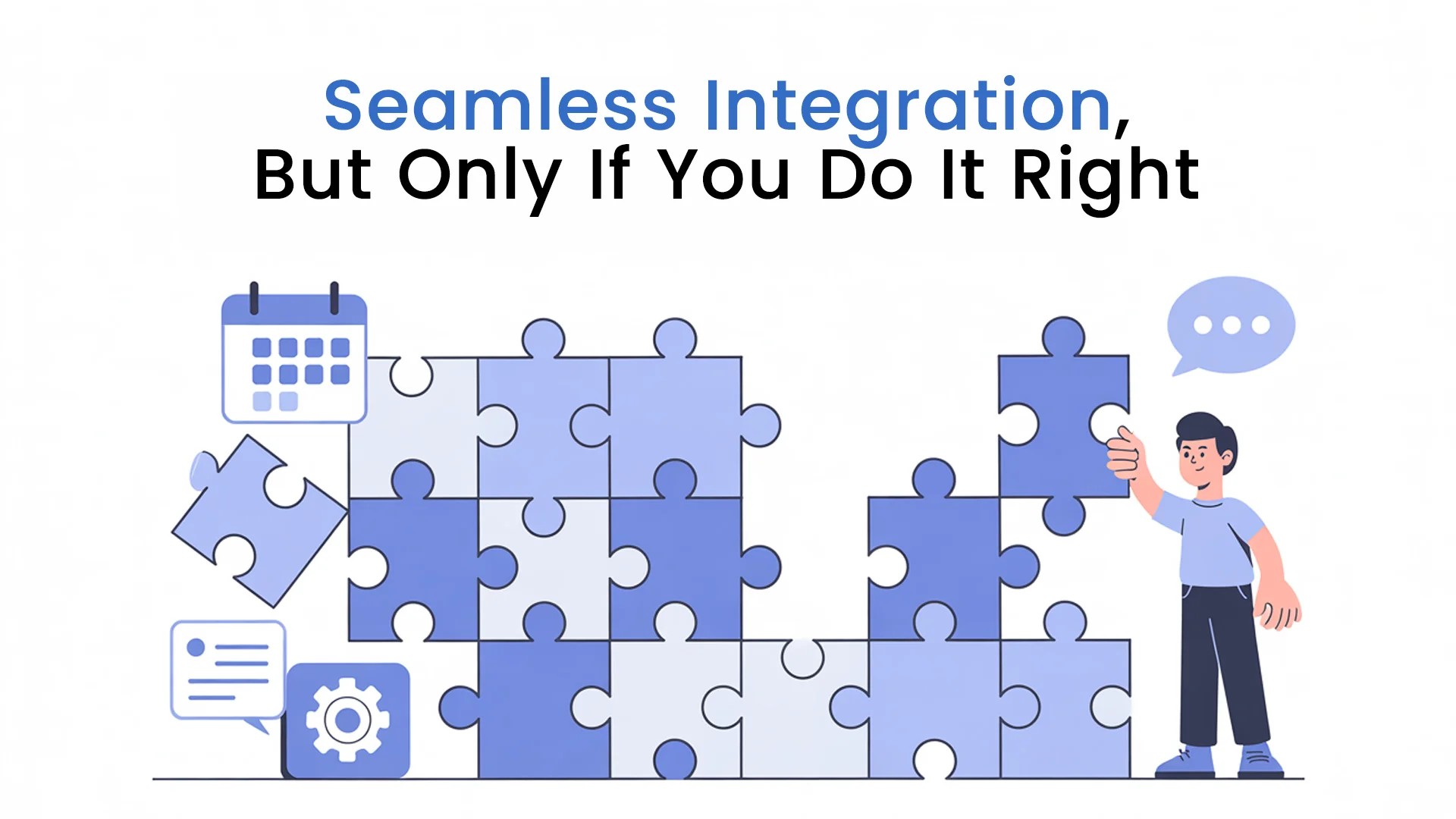
Future-Proofing the Firm
Virtual bookkeeping is about getting ahead, so we do not want to be stuck in the stone age.
The best platforms already include AI-driven insights, predictive analytics, and even anomaly detection. They’re not just recording your firm’s history, they’re also helping you write its future.
And because they’re cloud-based and endlessly scalable, they grow with you, and you don’t need to tear everything down every few years.

So, Should You Invite This Affordable Yet Quality Assistant In?
A virtual bookkeeping assistant might just be the most quietly transformative hire you’ll ever make. It frees up your people, delights your clients, saves you money, and maybe even your sanity. And it does it all so quietly, you’ll hardly notice it’s there.
Ready to see what your firm could become?
Contact us now and start exploring virtual bookkeeping solutions today with MyTasker, because the future of CPA work is going to be digital and highly optimized.

FAQs
Can virtual assistants do bookkeeping?
Most virtual assistants are trained at least in basic accounting software like QuickBooks, Xero, Wave, etc. They can assist quite competently in tracking expenses, reconciling accounts, generating invoices, and maintaining your books.
What is virtual bookkeeping?
Virtual bookkeeping is just the type of bookkeeping one is engaged in. Virtual bookkeeping simply means getting someone virtually to do one's bookkeeping. It's just a typical bookkeeper coming in and managing your financial records while being outside of the office. They will then log into your accounting software to update your books, reconcile transactions, and keep everything up-to-date, just like a regular in-person bookkeeper.
Is a virtual assistant an accountant?
Not exactly, because a virtual assistant can perform some accounting-related tasks, such as bookkeeping or preparing basic reports, but they are not licensed accountants. YHowever, they can still help you if you need tax advice, audits, or financial planning.
What is a VA bookkeeper?
A VA bookkeeper is a virtual assistant who only does bookkeeping. They focus on keeping your books up to date instead of working on general admin tasks.




